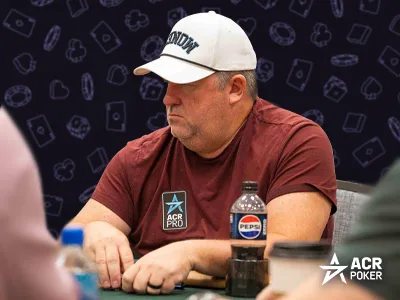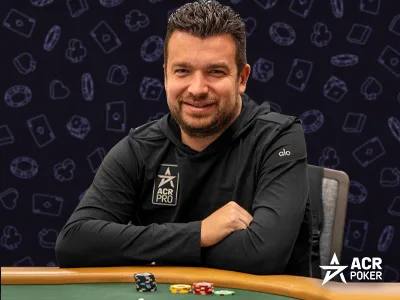Success from the big blind in multi-way pots comes from patience and selectivity Playing from the big blind in multi-way pots is one of the toughest spots in Texas Hold’em. You close the action preflop, but you’ll often be out of position after the flop. That combination demands discipline and clear thinking. Because you already
Category: Advanced
Utilizing a Tight-Aggressive Strategy to Minimize Cold Deck Losses
A disciplined, tight-aggressive framework provides structure, helping you limit losses Cold decks are part of poker. Sometimes strong starting hands run into even stronger holdings, and chips disappear quickly. While no strategy can eliminate bad luck, a tight-aggressive approach can reduce the damage during those stretches. Playing tight means entering pots with solid starting hands.
Dealing with Tilt and Emotional Control in Short Deck Hold’em
Players who stay calm during swings gain an edge over those who let emotions dictate their decisions Short Deck Hold’em is a fast, volatile game that can test even experienced players’ emotional control. With fewer cards and more frequent big hands, swings happen quickly and often without warning. Managing tilt becomes just as important as
Adjusting to Changing Table Sizes in Short Deck Hold’em
Success in short deck depends on recognizing how fewer seats reshape the game Short Deck Hold’em already plays faster than traditional Texas Hold’em, but changing table sizes add another layer of complexity. Moving from six-handed to four-handed, or even heads-up, shifts hand values, aggression levels, and positional importance. Players who fail to adjust often leak
The Influence of Cold Decks on Your Long-Term Poker Strategy
Incorporating cold decks into your overall strategy means planning for them, not fearing them Cold decks are one of the most frustrating parts of poker. Long stretches without playable hands can make even disciplined players question their approach. While they feel personal in the moment, cold decks are a normal part of variance and should
Tips for Playing Short Deck Poker in High Stakes Environments
Identifying who over-bluffs, who calls too wide, and who adjusts poorly allows you to exploit edges Playing Short Deck Poker at high stakes demands sharper adjustments than the standard game. With fewer cards in the deck, hand values shift and variance increases. Players must be prepared for faster swings, thinner edges, and opponents who are
Building a Study Routine for Six-Plus Hold’em
A steady routine with clear goals leads to better retention than occasional deep dives Six-Plus Hold’em requires a different study approach than traditional No-Limit Hold’em. The reduced deck changes hand values, equity distribution, and betting dynamics. Building a focused study routine helps players adjust faster and avoid costly habits. Start by learning the rule differences
Cash Game Tactics in Short Deck Poker
Players who can adjust quickly to the format gain a clear edge Short Deck poker cash games require a mindset shift from traditional No-Limit Hold’em. With cards below six removed, hand values change, equities run closer, and aggression becomes far more important. Starting hand selection is the first major adjustment. Premium hands still matter,
Understanding the Disconnect Between Card Decks and Player Skill
True mastery in poker comes from separating emotion from expectations Many players struggle with the idea that card decks do not “care” who is sitting at the table. Cards are random, neutral, and independent of past outcomes. Skill does not influence which cards appear, only how those cards are used once they arrive. This disconnect
Balancing Poker Strategy: The Fine Line Between Caution and Aggression
The real edge comes from knowing when to tighten up and when to turn up the pressure Balancing caution and aggression in poker is one of the toughest skills to master because the game constantly shifts between moments that reward patience and spots that demand pressure. Leaning too far in either direction creates predictable patterns.
Transitioning from Texas Hold’em to Six-Plus Hold’em
Mastering Six-Plus Hold’em requires embracing volatility, rethinking hand values and staying aggressive Transitioning from traditional Texas Hold’em to Six-Plus Hold’em (also called Short Deck) requires adjusting both your mindset and core strategy. The game uses a smaller deck, removing all cards below a six, which shifts hand values, equity spreads, and preflop dynamics. Players who
Understanding Equity Shifts in Short Deck Poker
In Short Deck, the player who best understands equity swings ends up in high-EV situations Short Deck poker changes traditional equity calculations in ways that can trip up even experienced Hold’em players. With the 2s through 5s removed from the deck, the game becomes far more volatile, and seemingly small adjustments in card distribution lead












